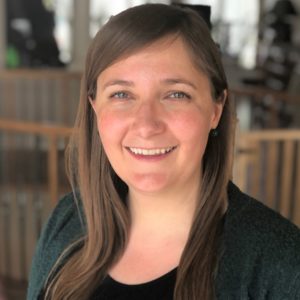
If you found out tomorrow that you only had six months to live, what would you do? Would you travel the world or spend time with your family? Would you go to work or hike that mountain you always wanted to conquer? What would everyday life look like? Would this change as you approached your final days? As an occupational therapist, I work with people living with life-limiting conditions, helping them overcome barriers so they can live as fully as possible until the end.
This is a timely topic in today’s political and social climate. When considering ending life through assisted dying due to advancing disease, people often think the reason is primarily due to pain or unbearable symptoms. However, in 20 years of collected data, over 90% of people choosing to end their life said the main reason was because they couldn’t do the things that they wanted to do [1, 2]. Despite this, the medical system mainly focuses on symptom management. Overall, this is done well. However, this begs the question, why are we not directly addressing the main priorities of people at end of life and how do these priorities change over time?
To explore and research these questions, I enrolled in a PhD program. Although it meant long distance studies from Canada, I chose Flinders University to study under a world expert in my field: Dr. Deidre Morgan. The supervision received has been phenomenal and enriched my learning as I shifted from over 20 years working in health care to academia. I appreciate and value the shared research vision, professional integrity, wisdom, and knowledge of my supervisors. Completing a PhD from Canada enabled me to remain connected to and research in my community, yet also to complete all candidature milestones via online platforms. I appreciate Dr. Deidre Morgan, Emeritus Professor Eileen Willis, Professor Tara Brabazon, and the Office of Graduate Research who made long-distance research and professional development possible.
My research focused on this question: what is the lived experience of everyday life for working-aged adults living with advanced cancer? Their experience is different to seniors, who have lived a longer life. The adults in my study had families, household responsibilities, work, and/or house payments. They didn’t expect to die young. We hear so much about people ‘fighting’ cancer, or winning the ‘battle’ against cancer, we don’t think that cancer will actually kill us when we are young, nor do we consider what the last few months might look like. So, to understand their experiences at end of life, I interviewed working-aged adults living with advanced cancer on a regular basis in their last few months of life. This gave a voice to the participants and allowed me to explore what their experience of everyday life was—from their own perspective—and how these experiences changed over time. Study results are available on the Research Centre for Palliative Care, Death and Dying (RePaDD) website: https://blogs.flinders.edu.au/repadd/2021/03/30/repadd-seminar-the-intentional-pursuit-of-everyday-life-while-dying-a-longitudinal-study-of-working-aged-adults-living-with-advanced-cancer/ or on Twitter @JulieBroseOT
People living with advanced cancer want to keep doing things important to them, and we need to listen to their voices as we manage symptoms, design programs, develop policy, and shape health care practice. How do we ensure people are able to do what they want to do until the end of life? Or, in other words, how do we help people feel like themselves and maximise their quality of life as long as possible? What would you want to do if you only had six months of life to live?
- Health Canada, First annual report on medical assistance in dying in Canada 2019. 2020, Health Canada: Ottawa.
- Oregon Health Authority, Oregon Death with Dignity Act: 2020 Data Summary, Oregon Health Authority Public Health Division, Editor. 2021.


